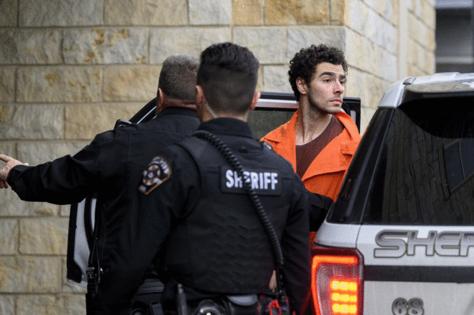Why Luigi Mangione only faces a second-degree murder charge in the UnitedHealthcare CEO homicide
Published in News & Features
The Maryland native accused of gunning down UnitedHealthcare CEO Brian Thompson earlier this month faces five charges in New York, the most serious being second-degree murder.
Each state defines its own murder statute, and many state laws lay out differing levels of seriousness with different definitions of what constitutes each degree.
Had the shooting taken place in Maryland, where Luigi Mangione grew up and graduated as Gilman School’s valedictorian, the suspect would most likely be charged with first-degree murder. But New York’s degrees of homicide are different. In New York, second-degree murder mainly refers to intentionally causing the death of another person — roughly the same as Maryland’s first-degree murder statute, said Bradley S. Shepherd, a Maryland defense attorney with Posner & Cord LLC.
New York’s second-degree murder statute also includes killings that happen in the commission of other felonies, as well as certain other “reckless” conduct that leads to a person’s death.
First-degree murder under New York law refers to a killing involving specific aggravating factors — intentional homicides in which the victim is a judge, a first responder or a police officer — or when a defendant uses torture, kills a witness to prevent them from testifying or kills somebody “in furtherance of an act of terrorism.” It also includes murder-for-hire cases.
“It’s not a common thing, and it’s not easy to satisfy that standard,” said Nicole Brenecki, a partner at the Brooklyn, New York-based law firm Jodré Brenecki LLP.
Criminal defense attorneys weighed in that the only route they saw New York prosecutors obtaining a first-degree murder conviction against Mangione, 26, would be to prove that he killed Thompson to further an act of terrorism.
“It would be a really grandiose theory,” said Brenecki. “They’d really have to nail him on the intent” of the homicide being a terrorist act to influence the healthcare industry, she said.
“That’s very, very big and serious,” she said, noting that she personally didn’t think it’d be worth it for prosecutors to upgrade the charge.
The most common penalty for both first- and second-degree murder in New York is life, and the main difference is that a first-degree murder conviction can lead to life without the possibility of parole, said Richard Schoenstein, a partner at New York-based Tarter Krinsky & Drogin LLP. Only a very narrow range of second-degree murder convictions, specifically involving victims under the age of 14, can lead to a sentence of life without parole.
The minimum term of imprisonment is slightly higher for defendants convicted of first-degree murder — they must serve at least 20 years before being paroled, rather than 15 for second-degree murder. Both Maryland and New York have eliminated the death penalty.
Upgrading Mangione’s charge “adds a degree of proof and legal complexity that I’m not sure is necessary,” said Schoenstein. He wasn’t sure what the upside of pursuing first-degree murder conviction would be but speculated they could do it based on the reaction to the high-profile killing, which has included online praise of Mangione.
“Maybe you want to send a message by attacking it as an act of terrorism,” he said, noting it would still “complicate the case.”
There are only two degrees of murder in Maryland as well. The state defines first-degree murder as premeditated and intentional, resulting in a life sentence. Second-degree murder, which has a maximum sentence of 40 years, is defined as any murder that is “not in the first degree.” That could mean an intentional killing that was not premeditated, said Shepherd. It also includes “depraved heart” murder, which covers acts taken “with an extreme disregard for human life” that result in death, which would also fall under New York’s second-degree murder statute.
Mangione, a University of Pennsylvania graduate, is currently jailed on forgery and weapons charges in Pennsylvania, where he was arrested at a McDonald’s days after the killing. His legal team there is fighting his extradition to New York, where he faces more serious charges connected to the Dec. 4 killing in Midtown Manhattan.
_____
©2024 Baltimore Sun. Visit baltimoresun.com. Distributed by Tribune Content Agency, LLC.







Comments